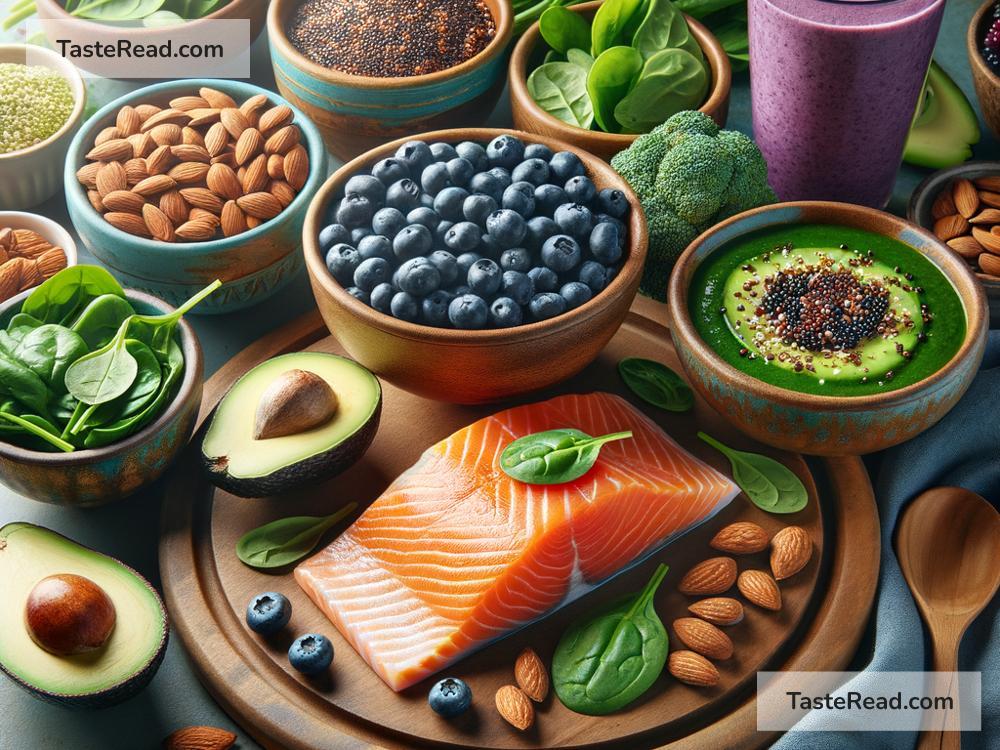Foods for Improving Quality of Life
Life is busy, and we often forget how important food is for our health and happiness. What we eat can affect the way we feel, how much energy we have, and even how well we sleep. By choosing the right foods, we can improve our quality of life and take steps toward being healthier and happier. In this blog, we will talk about some simple foods that can boost your overall wellbeing.
1. Start with Fruits and Vegetables
Fruits and vegetables are nature’s superfoods. They are full of vitamins, minerals, and antioxidants that keep your body strong and your mind sharp. Eating a variety of fruits and vegetables can help prevent diseases and improve your skin, hair, and energy levels.
For example:
– Leafy greens like spinach and kale are rich in iron and vitamin C, great for fighting tiredness.
– Berries, such as blueberries, strawberries, and raspberries, are packed with antioxidants that help protect your cells and brain.
– Carrots and sweet potatoes are rich in beta-carotene, which helps support healthy vision and your immune system.
Add fruits and veggies to every meal. Even a simple salad or a piece of fruit as a snack can make a big difference!
2. Include Whole Grains
Whole grains like brown rice, quinoa, and oats are excellent sources of long-lasting energy. Unlike white bread or sugary snacks, whole grains provide your body with fiber, which improves digestion and keeps your gut healthy. Fiber also makes you feel full, which means you’re less likely to snack on unhealthy foods.
Switching to whole grain options is easy:
– Choose brown rice instead of white rice.
– Eat whole-grain bread instead of white bread.
– Start your day with oatmeal instead of sugary cereals.
These small swaps will help stabilize your blood sugar and keep you energized all day.
3. Healthy Proteins Matter
Protein is essential for building and repairing tissues in your body. Healthy protein sources also help you feel full and fuel your muscles. However, not all proteins are created equal—choose lean and clean options whenever possible.
Some examples of healthy proteins are:
– Fish, especially salmon and mackerel, which are high in omega-3 fatty acids that support heart and brain health.
– Chicken and turkey, which are lean and rich in protein.
– Plant-based proteins like beans, lentils, and tofu, which are excellent for vegetarians and vegans.
If you’re looking for snacks with protein, nuts and seeds (like almonds, walnuts, or sunflower seeds) are great choices in moderation.
4. Don’t Forget Healthy Fats
Fat often gets a bad reputation, but the truth is, your body needs healthy fats for energy, brain function, and hormone balance. The trick is to choose fats from natural sources and stay away from trans fats and highly processed options.
Good sources of healthy fats include:
– Avocados, which are rich in heart-healthy monounsaturated fats.
– Olive oil, a fantastic option for cooking and salads.
– Fatty fish like salmon, tuna, and sardines, packed with omega-3 fatty acids.
– Nuts and seeds, which are great sources of vitamins and minerals.
Adding a slice of avocado to your sandwich or using olive oil in cooking is an easy way to include healthy fats in your diet.
5. Stay Hydrated
Water is just as important as food when it comes to improving your quality of life. Staying hydrated helps your body perform at its best—your skin looks better, your digestion improves, and your energy levels stay steady.
Try these tips to drink more water throughout the day:
– Start your morning with a glass of water.
– Carry a reusable water bottle with you everywhere.
– Add slices of lemon, cucumber, or mint to make plain water more exciting.
– Choose water or herbal teas over sugary sodas or juices.
Hydration is simple, yet it makes a big difference in your mood and body.
6. Small Treats Are Okay
Improving your quality of life doesn’t mean you have to give up your favorite treats completely. A healthy lifestyle is about balance. If you enjoy chocolate, for example, choosing dark chocolate can satisfy your sweet tooth while offering antioxidants. The key here is moderation—treats are fine as long as they don’t take over your diet.
7. Limit Processed Foods and Sugar
If you want to feel good, avoiding highly processed foods and sugary drinks is a smart move. These foods often contain unhealthy fats, excessive salt, and artificial ingredients that can leave you feeling sluggish and affect your mood.
Instead, focus on whole, natural foods, and reserve processed snacks for rare occasions. Cooking meals at home using simple, fresh ingredients can transform your diet and your energy levels.
Conclusion
Eating well doesn’t have to be complicated. By adding more fruits, vegetables, whole grains, proteins, and healthy fats to your diet, you can greatly improve your quality of life. Staying hydrated and limiting processed foods will also have a positive impact on your wellbeing. Remember, small changes can lead to big results over time.
Food is fuel for your body and mind. Treat it with care, and you’ll feel healthier, more energetic, and more joyful in your daily life. Start by making small swaps, and soon enough, you’ll notice the difference. Eating good food isn’t just about living longer—it’s about living better. So, why not take the first step today?


